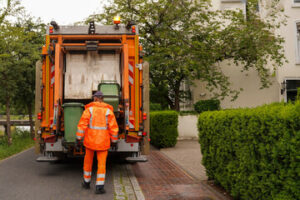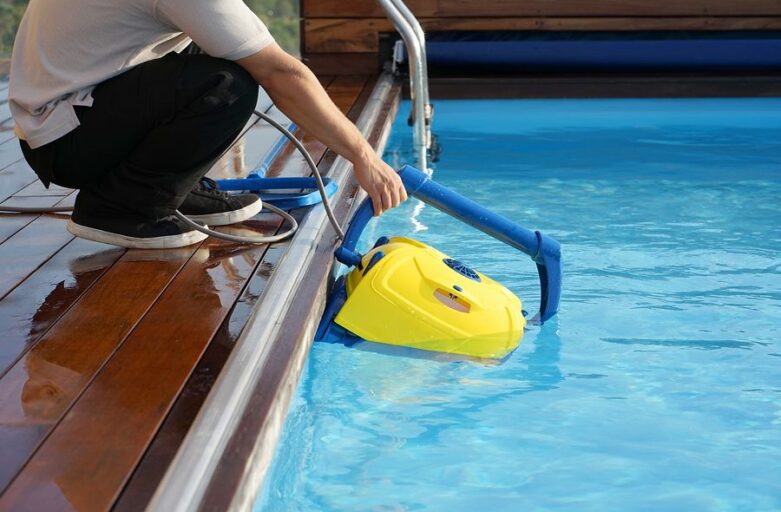Maintaining a clean environment is essential for any business. It creates a good impression on customers, encourages customer loyalty, and helps to keep staff healthy.

Commercial Cleaning Baltimore provides a wide range of services to businesses of all sizes. They can clean spaces difficult for a regular custodial staff member to access. They also offer waste removal and recycling, essential for reducing pollution and saving natural resources.
Whether you work in retail, healthcare or hospitality, keeping a clean workplace is vital for customer satisfaction and staff health. Commercial cleaners are trained to be thorough and can spot problems that may not have been noticed by a member of staff. This can include stains on carpeting, damaged furniture or even pest infestations. They can report their findings to the person in charge of the cleaning so that they can be addressed promptly.
However, the job of a commercial cleaner can be dangerous, particularly when working with chemicals and high-risk equipment. It is therefore important that all staff adhere to strict health and safety procedures when carrying out their duties. This not only ensures the safety of everyone involved but also helps minimise risks and prevents costly accidents.
Hazards that can be encountered by members of a commercial cleaning team include slips, trips and falls, chemical burns, exposure to hazardous materials and musculoskeletal injuries. All of these hazards can be prevented by following a few simple rules. It is vital that all workers are fully aware of the health risks associated with the chemicals they use, how to store them correctly and the proper procedure to follow in the event of a spillage. Staff should also wear the appropriate PPE (personal protective equipment) and cordon off areas appropriately while cleaning is taking place.
In addition, it is crucial that all employees are fully trained on how to use the various pieces of equipment they may encounter. This includes floor buffers, steam cleaners and other janitorial equipment that could potentially cause harm if not used properly. Staff should be made aware of the safe operating procedures for each piece of machinery and be able to identify any potential dangers such as moving parts, hot sections or pinch points.
Lastly, it is vital that all staff take regular breaks to rest their bodies and minds. Not only will this help them stay more productive but it will also keep them healthy and reduce absenteeism. Getting a good night’s sleep and ensuring they have plenty of fresh air will help them to concentrate better and feel more refreshed when returning to work.
Customer Satisfaction
A clean work environment is essential for any business. It reflects professionalism and attention to detail, and it helps to create a good impression on customers and clients. It also contributes to productivity and can reduce health and safety concerns. A commercial cleaning company can ensure that a workplace is always clean and ready for staff and visitors, and they can offer services that suit a specific industry or type of premises.
Using a commercial cleaner can also save time and money. Professional cleaners are used to working in large teams and will be able to complete jobs quickly and efficiently. They will also have the training and expertise to deal with any unusual or specialist cleaning needs that may arise. In addition, they can provide verification of their skills and qualifications as part of the proposal process.
Commercial cleaning companies often use a variety of cleaning methods to remove dirt and debris from surfaces. They can also provide waste removal and recycling services. This can help to reduce the amount of trash that is sent to landfills and cut down on pollution.
In addition to regular cleaning, commercial cleaning companies can also provide ad hoc services, such as deep cleaning, floor care, and upholstery cleaning. These can be particularly useful for businesses that have a high footfall and need to keep their public spaces looking their best.
Many commercial cleaning companies have a dedicated team for emergency situations. This can be helpful if a member of staff is off sick or if there are unexpected events that disrupt normal operations. They can deal with spills and accidents quickly and efficiently to minimise damage and impact.
When hiring a commercial cleaning company, ask for references and a client list. This will give you an idea of the quality of their work and whether they are a good fit for your business. It is worth finding out if they are specialists in the type of cleaning you require or if they have experience working in different industries and types of premises.
A commercial cleaning company will have many trained staff and will be able to cover sick leave and holiday periods. This means that you can be sure your cleaning will always be carried out to the highest standards, even during busy times.
Keeping Up with the Latest Techniques and Equipment
As a commercial cleaner, it’s important to keep up with the latest techniques and equipment. This will ensure that you are providing a quality service and keeping up with industry standards. There are a variety of different equipment options for commercial cleaning, from simple tools to heavy-duty machinery. In addition, there are a number of different cleaning solutions available, including natural and non-toxic options. It’s also important to consider the specific needs of each business you are servicing, as these may require specialized cleaning products and equipment.
Many commercial spaces have high foot traffic and must be cleaned more frequently than residential spaces. This means that they will need more thorough cleaning and disinfection, as well as larger and more advanced equipment. In addition, commercial spaces often have a wide range of surfaces that must be cleaned, from tile and concrete to wood and carpet.
Hiring a commercial cleaning service can save businesses time and money. In addition to improving health and safety, a clean workspace can also make employees happier and more productive. Moreover, a clean workspace can improve a company’s reputation and attract new customers.
Commercial cleaning services can help businesses stay compliant with local and federal regulations. In addition, they can also ensure that waste is disposed of properly to protect the environment. These services are vital for the success of any business, so it’s important to find a reputable cleaning service that can meet all of your needs.
Another advantage of hiring a commercial cleaning service is that they can provide a more thorough and professional job than employees or DIY methods. Commercial cleaners have received training in the cleaning process and are familiar with the best techniques for each type of surface and product. This can make a huge difference in the finished result, as well as reducing the risk of damage and staining.
Commercial cleaning is a competitive industry, and it can be difficult for a new business to stand out from the crowd. However, if you take the time to research your competition and understand the scope of each industry and location, you can be more successful in bidding for jobs. Additionally, by investing in quality equipment and supplies, you can maximize your profitability and grow your cleaning business faster.
Compliance
Commercial cleaners are required to keep up with a number of industry standards and regulations. This includes proper training and sanitization protocols to prevent the spread of illness and disease in the workplace. They must also be able to handle cleaning tasks with minimal interruptions, and they must ensure that the work meets client specifications. Regular inspections and audits are essential to maintaining compliance and building trust with clients.
Keeping up with these requirements is challenging, especially when employees work in different locations. However, technology has helped improve the quality of service and the efficiency of cleaning operations. For example, management software can streamline processes and provide detailed reports that highlight areas where improvements are needed. In addition, connected devices and sensors can monitor air quality, identify issues like a leaky pipe, and even track the use of cleaning supplies.
Another way to maintain compliance is by ensuring that your cleaning staff is properly classified as either employees or contractors. Employees must be paid with the appropriate taxes, and the IRS can impose heavy fines on businesses that misclassify workers. It is also important to have a clear communication system between employees and managers, especially when multiple teams are working in a shared space.
In the industrial cleaning sector, compliance with industry standards is especially critical. This is because many industrial jobs involve handling hazardous chemicals and working in dangerous environments, so strict sanitization measures are necessary to protect employees and the public. Furthermore, many customers are increasingly looking for companies that prioritize environmental responsibility and sustainability, so complying with these standards will give you a competitive advantage.

